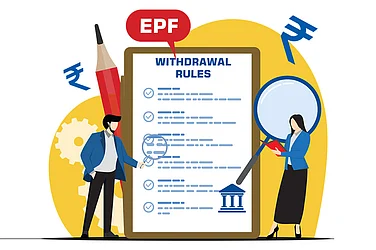The festive season is usually a whirlwind of emotions, a minefield for marketers to explore and exploit, and entice consumers. We see it in those tear-jerker Diwali ads. Thankfully, some of them have moved beyond gender and societal stereotypes in recent years. They show sons AND daughters living in different cities returning home to celebrate Diwali with lonely parents; the mother surprising the family with prized gifts. Some even follow themes of inclusivity in terms of class, religion, region and others.
But festive marketing goes beyond the ads. Step into a marketplace, physical or online, and the fancy trimmings and buntings, the special pop-ups and lighting, the discounts and offers, will put you in the right mood. The people milling around, shopping, eating, bickering, and those notifications saying ABC from XYZ city just bought this product, will act as final nudges to create a sense of urgency, egging you on to spend, spend and spend more. And there you go!
It is true that some of the offers are truly good or you may have already been saving for a newly launched product. So how do you cut the noise and bag a good deal? Applying a few simple filters will help you eliminate the variables that don’t matter and bag the right deal.
Need: The first filter for elimination is need. Is your phone working fine or do you really need to replace it? If you do, go ahead and buy a new phone. If you don’t, filter out that urge as a want. Does your kid really need the cute teddy you picked near the billing counter? If the kid already has a roomful of soft toys, junk it. If not, keep it if it’s a good deal but maybe check the toys corner first.
Priority: Once you are done with buying what you really need, come to the discretionary spends, such as gifts for family and friends. If you have friends you are no longer close to, eliminate them from the list. Consider other factors to shorten the list.
Affordability: That’s an important filter to apply before you lay your hands on anything. Can you afford that high-priced décor item for your cousin who gave you something expensive last year? If not, eliminate that item and settle for something else. But if you can afford that extra pyjama you don’t really need now but will use sometime later, when it may become more expensive, you may choose to pick it up.
Debt: Whether buying a particular item will create unnecessary debt is another filter to apply. If you had planned to replace your old phone with the newly launched iPhone 17 and were saving for it in advance, follow your plan. But if it means taking a loan, even if it offers no-cost EMI, think again. A cheaper phone will serve your purpose until the next model hits the stands for which you can save systematically. As Indian investor Vijay Kedia recently said in a post on X, instead of buying iPhone 17 for `1 lakh if you save the money in a mutual fund, you will double it in six years. Minimise loans taken for depreciating assets: iPhone 17’s cost will depreciate to around `15,000 in the same period, Kedia said.
Suitability: You may love a fancy dress or a piece of furniture. But look at suitability. The dress may look great on a model or mannequin, but will its colour and cut suit your style and would you have enough occasions to use it in the future? Similarly, that coffee table may be charming, but do you have the space for it in your house?
But keep room for yourself too. Go with the festive fervour and treat yourself, but do apply the elimination filters to make choices that are more balanced, fulfilling and guilt-free.
Enjoy the festivities. Happy Diwali!














